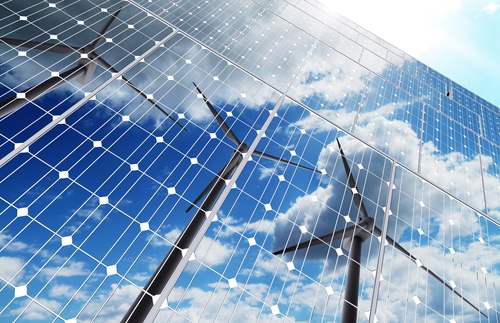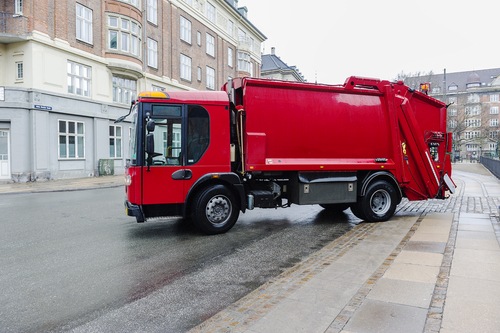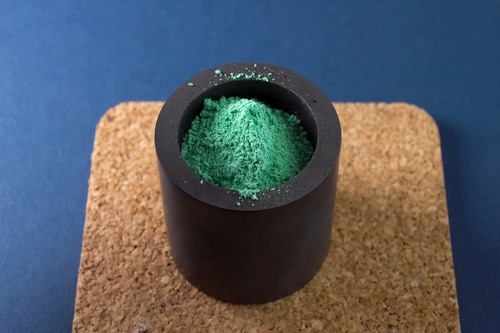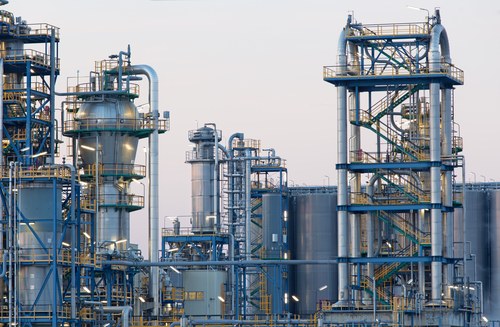US-Korean renewable energy and digital infrastructure joint venture established
South Korea’s leading energy sector consulting firm, Energy Innovation Partners (EIP), recently formed a joint venture with an energy company and digital infrastructure developer. The joint venture plans to build renewable energy generation facilities and data centers in South Korea. This is expected to attract large and well-known technology companies as customers. According to information from various investment industry sources, EIP entered into the joint venture called “The Green Korea (TGK)” with U.S. energy infrastructure developer and investor “Diode Ventures.” Numerous components needed for renewable energy production must be KC certified for Korea in order to be imported and distributed there. TGK is to become a financial platform that develops renewable energy facilities and digital infrastructure for multinational technology companies. Under TGK’s plans, separate subsidiaries will be created for each type of energy, solar and wind, as well as for its data center business. The customers, technology companies with global operations and currently the largest consumers of renewable energy, are to meet their needs from local sources in the future. TGK’s business model is thus based on the global “RE100” initiative, which aims to encourage well-known companies to voluntarily use 100 percent green electricity by 2050. According to the “Climate Group,” more than 340 companies have already joined the RE100 initiative.
Large technology companies such as Amazon, Google, Meta and Microsoft currently purchase about 30 percent of the green power generated worldwide. As a result, TGK expects these companies to source their electricity from plants in Korea in the future. TGK is initially investing $2.5 billion over the next three years to build an environmentally friendly power plant in South Korea. It also plans to invest in a 40-megawatt data center at a local private university in North Chungcheong Province and a 150-megawatt solar plant with a local partner in South Jeolla Province. Numerous investment banks believe that TGK’s collaboration with world-renowned companies will increase the demand of renewable energy in South Korea.
Feel free to contact us any time if you need assistance or have any questions regarding Korean certifications like KC, KC EMC, KCs, KCs for explosion safety products or KGS factory registration.
Tel. Europe: +49-69-271 37 69 261
Tel. US: +1 773 654-2673
Email: info@korea-certification.com
Urgent questions?
Please do not hesitate to contact us via chat. You will find the chat window at the bottom right of each page (if this is not visible, please check your browser settings).
For more information you can download our free brochure “Korea Certification Made Easy – The Booklet“.
TGK is to become a financial platform that develops renewable energy facilities and digital infrastructure for multinational technology companies. Under TGK’s plans, separate subsidiaries will be created for each type of energy, solar and wind, as well as for its data center business. The customers, technology companies with global operations and currently the largest consumers of renewable energy, are to meet their needs from local sources in the future. TGK’s business model is thus based on the global “RE100” initiative, which aims to encourage well-known companies to voluntarily use 100 percent green electricity by 2050. According to the “Climate Group,” more than 340 companies have already joined the RE100 initiative.
Large technology companies such as Amazon, Google, Meta and Microsoft currently purchase about 30 percent of the green power generated worldwide. As a result, TGK expects these companies to source their electricity from plants in Korea in the future. TGK is initially investing $2.5 billion over the next three years to build an environmentally friendly power plant in South Korea. It also plans to invest in a 40-megawatt data center at a local private university in North Chungcheong Province and a 150-megawatt solar plant with a local partner in South Jeolla Province. Numerous investment banks believe that TGK’s collaboration with world-renowned companies will increase the demand of renewable energy in South Korea.
Feel free to contact us any time if you need assistance or have any questions regarding Korean certifications like KC, KC EMC, KCs, KCs for explosion safety products or KGS factory registration.
Tel. Europe: +49-69-271 37 69 261
Tel. US: +1 773 654-2673
Email: info@korea-certification.com
Urgent questions?
Please do not hesitate to contact us via chat. You will find the chat window at the bottom right of each page (if this is not visible, please check your browser settings).
For more information you can download our free brochure “Korea Certification Made Easy – The Booklet“.
Hyundai Motor introduces first garbage truck with hydrogen engine
Back in December 2021, South Korea’s Hyundai Motor Group unveiled the world’s first hydrogen-powered garbage truck in a YouTube video. The truck’s body is no different from existing garbage trucks with diesel engines, but it has a storage tank for hydrogen and two fuel cells. These come from the Hyundai Nexo, the world’s only fuel cell-powered SUV. Thanks to the specially developed engine, the truck can climb steep inclines with ease despite being loaded with 4.5 tons of waste. Since January 2022, the garbage truck has been in service with the city of Changwon, South Gyeongsang Province. To be approved for the Korean market, pressurized products such as hydrogen storage tanks require KGS approval. In general, vehicles powered by hydrogen do not emit exhaust gases. Therefore, city sanitation workers who work on the garbage truck do not have to worry about exhaust gas pollution. Noise pollution has also been reduced by 40 percent thanks to the electric motor, and only a low hum from the drive can be heard. The water produced during operation in the fuel cell is collected in a tank and is used by employees for cleaning during and after work. After evaluating customer requirements, Hyundai Motor Group plans to build more special vehicles with hydrogen engines.
The Korea Gas Safety Corporation (KGS) is a government organization under the Ministry of Trade, Industry and Energy (MOTIE). Gas safety regulations in Korea began in 1974 with the passage of the Compressed Gas Control Act. In 1995, the Institute of High Pressure Gas Safety was established, and after several restructurings, the Korea Gas Safety Corporation (KGS) was established in 2001. One year later, KGS was affiliated with MOTIE. KGS was accredited as a Korean designated testing body in 2006 and was also accredited to perform KCs certification and testing of explosion-proof electrical equipment.
Feel free to contact us any time if you need assistance or have any questions regarding Korean certifications like KGS factory registration, KC, KC EMC, KCs and KCs for explosion safety products.
Tel. Europe: +49-69-271 37 69 261
Tel. US: +1 773 654-2673
Email: info@korea-certification.com
Urgent questions?
Please do not hesitate to contact us via chat. You will find the chat window at the bottom right of each page (if this is not visible, please check your browser settings).
For more information you can download our free brochure “Korea Certification Made Easy – The Booklet“.
In general, vehicles powered by hydrogen do not emit exhaust gases. Therefore, city sanitation workers who work on the garbage truck do not have to worry about exhaust gas pollution. Noise pollution has also been reduced by 40 percent thanks to the electric motor, and only a low hum from the drive can be heard. The water produced during operation in the fuel cell is collected in a tank and is used by employees for cleaning during and after work. After evaluating customer requirements, Hyundai Motor Group plans to build more special vehicles with hydrogen engines.
The Korea Gas Safety Corporation (KGS) is a government organization under the Ministry of Trade, Industry and Energy (MOTIE). Gas safety regulations in Korea began in 1974 with the passage of the Compressed Gas Control Act. In 1995, the Institute of High Pressure Gas Safety was established, and after several restructurings, the Korea Gas Safety Corporation (KGS) was established in 2001. One year later, KGS was affiliated with MOTIE. KGS was accredited as a Korean designated testing body in 2006 and was also accredited to perform KCs certification and testing of explosion-proof electrical equipment.
Feel free to contact us any time if you need assistance or have any questions regarding Korean certifications like KGS factory registration, KC, KC EMC, KCs and KCs for explosion safety products.
Tel. Europe: +49-69-271 37 69 261
Tel. US: +1 773 654-2673
Email: info@korea-certification.com
Urgent questions?
Please do not hesitate to contact us via chat. You will find the chat window at the bottom right of each page (if this is not visible, please check your browser settings).
For more information you can download our free brochure “Korea Certification Made Easy – The Booklet“.
Introduction to “Technical Certifications in China, India, Korea”

In June and July 2022, the Hanover Chamber of Commerce and Industry (IHK) will offer a series of online seminars created and conducted by us, MPR International.
The seminars are aimed at quality management representatives of industrial companies as well as project engineers or project managers responsible for certifications of products for China, India or Korea.
The free introductory event on 18.05.2022, 9:15-10:00 a.m. provides an overview of the certification landscape of the respective countries, which will be covered comprehensively and in depth in the individual seminars and is intended to give an insight into what you can expect in the individual seminars.
Registration is required for the introductory event.
The in-depth seminars will focus on the following countries and industries:
- Technical Certifications in China Automotive (2-part): – Part 1: Wed, 22.06.2022, 9:00-12:00 hrs. – Part 2: Fri, 24.06.2022, 9:00-12:00)
- Technical Certifications in India (1-part): – Mon, 06/27/2022, 9:00am-12:00pm.
- Technical Certifications in South Korea (1-part): – Tue, 06/28/2022, 9:00-12:00 (duration 3 hours)
- Technical Certifications of Industrial Products in China (2-part): – Part 1: Tue, 07/12/2022, 9:00am-12:00pm. – Part 2: Wed, 07/13/2022, 9:00am-12:00pm
At MPR International, we have been assisting hundreds of companies worldwide with certifications for the Chinese, Korean and Indian markets since 2005.
If you would like to receive more information about any of the certifications in advance, please visit our website or contact us by email or at +49692713769259.
The company Korea Zinc plans to double the production of raw materials for batteries
South Korea’s Korea Zinc Co. is considered the country’s leading lead and zinc smelter and plans to double its production capacity of nickel sulfate. The raw material is considered an important component of battery cathodes. The company expects increasing demand from battery manufacturers due to growth in the EV market. A subsidiary of Korea Zinc, Korea Energy Materials Co. (KEMCO), is responsible for producing the nickel sulfate. According to industry insiders, KEMCO purchased a roughly 16,000-square-meter plot of land to expand its production capacity from the current 50,000 tons annually to 80,000 to 100,000 tons. Production material for battery manufacturing in most cases requires KCs certification, or KCs certification for explosion-proof products, to be used in Korea. Nickel sulfate is considered a major precursor material for the production of cathodes and is one of the four components of lithium-ion batteries. It is produced by adding sulfuric acid to high-purity nickel. The resulting material can be used by battery manufacturers for cathodes without further processing steps. This speeds up the production process and reduces costs. By expanding its production capacity, Korea Zinc hopes to increase its market share in the global battery market. The industry already produces 90 percent of its cathodes from nickel sulfate. With these batteries, the range could be increased and production costs reduced. On average, the battery of an EV requires between 50 and 100 kilograms of nickel. Thus, after the expansion, Korea Zinc’s 100,000-ton facility can meet the needs of 1,000 to 2,000 EVs annually.
Based on the Occupational Health and Safety Act, the Korea Occupational Safety and Health Agency (KOSHA) requires KCs Ex certification of explosion-proof electrical components. Korea has been conducting Ex approvals since 1992. KCs certification was established to ensure basic safety in the design and manufacture of hazardous machinery and protective equipment in hazardous workplaces in Korea. The goal is to protect the health and safety of workers by preventing accidents. We provide certification services for all product areas, including KC certification for consumer products and especially electronics, KC-EMV certification for electronic products, and KCs certification for machinery, as well as KCs for explosion-proof products. We are available to answer any questions you may have about Korea certifications.
Feel free to contact us any time if you need assistance or have any questions regarding Korean certifications like KC, KC EMC, KCs, KCs for explosion safety products or KGS factory registration.
Tel. Europe: +49-69-271 37 69 261
Tel. US: +1 773 654-2673
Email: info@korea-certification.com
Urgent questions?
Please do not hesitate to contact us via chat. You will find the chat window at the bottom right of each page (if this is not visible, please check your browser settings).
For more information you can download our free brochure “Korea Certification Made Easy – The Booklet“.
Nickel sulfate is considered a major precursor material for the production of cathodes and is one of the four components of lithium-ion batteries. It is produced by adding sulfuric acid to high-purity nickel. The resulting material can be used by battery manufacturers for cathodes without further processing steps. This speeds up the production process and reduces costs. By expanding its production capacity, Korea Zinc hopes to increase its market share in the global battery market. The industry already produces 90 percent of its cathodes from nickel sulfate. With these batteries, the range could be increased and production costs reduced. On average, the battery of an EV requires between 50 and 100 kilograms of nickel. Thus, after the expansion, Korea Zinc’s 100,000-ton facility can meet the needs of 1,000 to 2,000 EVs annually.
Based on the Occupational Health and Safety Act, the Korea Occupational Safety and Health Agency (KOSHA) requires KCs Ex certification of explosion-proof electrical components. Korea has been conducting Ex approvals since 1992. KCs certification was established to ensure basic safety in the design and manufacture of hazardous machinery and protective equipment in hazardous workplaces in Korea. The goal is to protect the health and safety of workers by preventing accidents. We provide certification services for all product areas, including KC certification for consumer products and especially electronics, KC-EMV certification for electronic products, and KCs certification for machinery, as well as KCs for explosion-proof products. We are available to answer any questions you may have about Korea certifications.
Feel free to contact us any time if you need assistance or have any questions regarding Korean certifications like KC, KC EMC, KCs, KCs for explosion safety products or KGS factory registration.
Tel. Europe: +49-69-271 37 69 261
Tel. US: +1 773 654-2673
Email: info@korea-certification.com
Urgent questions?
Please do not hesitate to contact us via chat. You will find the chat window at the bottom right of each page (if this is not visible, please check your browser settings).
For more information you can download our free brochure “Korea Certification Made Easy – The Booklet“.
Sustainable fossil fuel production becomes necessary for South Korean oil refinery operators
For decades, South Korea’s four major oil refinery operators set an example for the entire industry in terms of upgrading their facilities. These multi-billion dollar investments often resulted in higher costs and lower profits. Leading refiner SK Energy, as well as local giants GS Caltex Corp, S-Oil Corp and Hyundai Oilbank Co, have invested large sums in upgrading their facilities to produce high-quality end products such as gasoline from low-cost crude. Hyundai Oilbank’s expansion or upgrade rate of 40.6 percent is among the highest in the industry worldwide, followed by GS Caltex at 34.4 percent, S-Oil at 33.8 percent and SK Energy at 24.9 percent. This compares with refineries in China and Japan at around 20 percent, and plants in Russia and Saudi Arabia at 10 percent. Products from the oil and gas industry require certification to a large extent on the Korean market. Gas and pressure vessels usually require KGS factory approval. With the global trend toward sustainable energy production, so-called ESG (environmental, social, governance) goals have also become standard in the energy sector. Refinery operators around the world are looking for new revenue streams beyond the traditional oil business to continue making profits. South Korean companies are even considering changing their corporate name to move away from the image of the dirty oil business and invest more in renewable energy. Still, operators must continue to invest in their plants to remain competitive, analysts say.
Analysts believe companies have no option but to continue upgrading their facilities, as more than two-thirds of revenues come from refining operations. To boost profits, some refiners are now sourcing cheaper crude from South America. For example, Hyundai Oilbank last year bought Colombia Castilla, an oil grade that is inferior to oil from the Middle East but costs about 10 percent less. As a result, the share of oil imported from countries other than the Middle East rose from 45 to 65.3 percent and 18.2 to 25.3 percent for both Hyundai and GS Caltex, respectively. Meanwhile, SK Innovation, the parent company of SK Energy, has announced plans to become an environmentally friendly company in the long term and to invest about $24 billion in restructuring projects by 2025.
We offer certification services for all product areas, including KGS factory approvals for high-pressure and gas appliances. We are available to answer any questions you may have about Korea certifications.
Feel free to contact us any time if you need assistance or have any questions regarding Korean certifications like KC, KC EMC, KCs, KCs for explosion safety products or KGS factory registration.
Tel. Europe: +49-69-271 37 69 261
Tel. US: +1 773 654-2673
Email: info@korea-certification.com
Urgent questions?
Please do not hesitate to contact us via chat. You will find the chat window at the bottom right of each page (if this is not visible, please check your browser settings).
For more information you can download our free brochure “Korea Certification Made Easy – The Booklet“.
With the global trend toward sustainable energy production, so-called ESG (environmental, social, governance) goals have also become standard in the energy sector. Refinery operators around the world are looking for new revenue streams beyond the traditional oil business to continue making profits. South Korean companies are even considering changing their corporate name to move away from the image of the dirty oil business and invest more in renewable energy. Still, operators must continue to invest in their plants to remain competitive, analysts say.
Analysts believe companies have no option but to continue upgrading their facilities, as more than two-thirds of revenues come from refining operations. To boost profits, some refiners are now sourcing cheaper crude from South America. For example, Hyundai Oilbank last year bought Colombia Castilla, an oil grade that is inferior to oil from the Middle East but costs about 10 percent less. As a result, the share of oil imported from countries other than the Middle East rose from 45 to 65.3 percent and 18.2 to 25.3 percent for both Hyundai and GS Caltex, respectively. Meanwhile, SK Innovation, the parent company of SK Energy, has announced plans to become an environmentally friendly company in the long term and to invest about $24 billion in restructuring projects by 2025.
We offer certification services for all product areas, including KGS factory approvals for high-pressure and gas appliances. We are available to answer any questions you may have about Korea certifications.
Feel free to contact us any time if you need assistance or have any questions regarding Korean certifications like KC, KC EMC, KCs, KCs for explosion safety products or KGS factory registration.
Tel. Europe: +49-69-271 37 69 261
Tel. US: +1 773 654-2673
Email: info@korea-certification.com
Urgent questions?
Please do not hesitate to contact us via chat. You will find the chat window at the bottom right of each page (if this is not visible, please check your browser settings).
For more information you can download our free brochure “Korea Certification Made Easy – The Booklet“.



